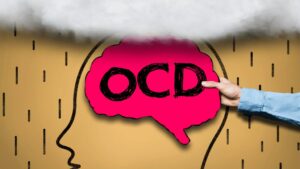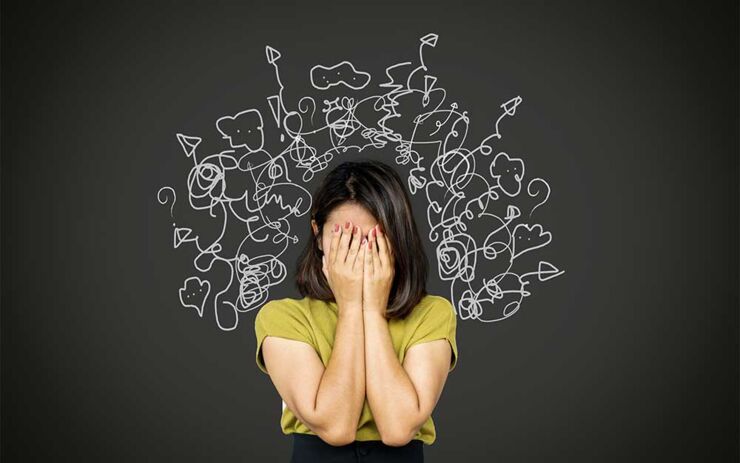Obsessive-Compulsive Disorder (OCD) is a mental health disorder that can take a toll on a person’s life. It is often characterized by intrusive thoughts, compulsions, and behaviors. OCD is difficult to treat due to its complexity and the sheer variety of symptoms individuals experience. That’s why there has been an increase in research into experimental treatments for OCD. In this blog post, we’ll discuss the various types of treatment options available for people with OCD and how they can help improve an individual’s quality of life. From medication to cognitive behavioral therapy and more, learn all about the different approaches that may work for you or your loved one suffering from OCD.
Contents
OCD Treatment
 Treating OCD can be a complex process, as it involves addressing a range of symptoms and behaviors. The most common types of OCD treatment are Cognitive Behavioral Therapy (CBT), Exposure and Response Prevention (ERP), medications, Habit Reversal Training (HRT), and Mindfulness-Based Cognitive Therapy (MBCT). Each type of treatment has its own set of benefits and drawbacks, so it’s important to find the approach that best suits your needs.
Treating OCD can be a complex process, as it involves addressing a range of symptoms and behaviors. The most common types of OCD treatment are Cognitive Behavioral Therapy (CBT), Exposure and Response Prevention (ERP), medications, Habit Reversal Training (HRT), and Mindfulness-Based Cognitive Therapy (MBCT). Each type of treatment has its own set of benefits and drawbacks, so it’s important to find the approach that best suits your needs.
- Cognitive Behavioral Therapy is a form of psychotherapy that focuses on changing maladaptive thoughts, beliefs, and behaviors. It involves learning to identify and challenge irrational thoughts while also learning how to replace them with more helpful ones. CBT is often used in combination with other treatment methods like ERP or HRT.
- Exposure and Response Prevention is another type of therapy for OCD that helps people confront their fear triggers without engaging in compulsive behavior. This form of therapy works by gradually exposing patients to their fear triggers while teaching them how to manage their anxiety without engaging in compulsions.
- Medications such as Selective Serotonin Reuptake Inhibitors (SSRIs) can be used to reduce intrusive thoughts and compulsive behaviors associated with OCD. They are generally taken in combination with psychotherapy.
- Habit Reversal Training is a behavioral therapy technique that focuses on replacing compulsive behaviors with more constructive ones. It also involves identifying situations and thoughts that trigger compulsions and developing strategies to cope with them.
- Mindfulness-Based Cognitive Therapy is a type of therapy that combines mindfulness meditation and cognitive-behavioral techniques to help individuals become aware of their thoughts and feelings without judgment. This form of therapy can be beneficial for those who struggle with OCD because it helps them gain insight into the origins of their anxiety and how to better manage it.
Experimental OCD Treatment
Using experimental treatments for OCD is becoming increasingly popular as research continues to uncover new treatment options. These can include virtual reality therapy, transcranial magnetic stimulation (TMS), and deep brain stimulation (DBS).
Some people have found relief from their OCD symptoms by using virtual reality therapy. This is a form of cognitive behavioral therapy that uses immersive virtual environments to help people confront their fear triggers and learn new coping skills.
People with OCD may also benefit from transcranial magnetic stimulation (TMS). This non-invasive treatment uses magnets to stimulate nerve cells in the brain. It is believed that this can help reduce symptoms of anxiety and depression associated with OCD.
Techniques of Experimental OCD Treatment
Many different techniques can be used in experimental OCD treatment. Some of the most common techniques include:
Deep Brain Stimulation
One of the most common techniques used in experimental OCD treatment is deep brain stimulation. This involves placing electrodes in specific areas of the brain to provide electrical stimulation and alter neural pathways. Different types of DBS can be used to target different areas of the brain, such as those associated with compulsions and obsessions. Some clinical trials are looking at the effectiveness of DBS in treating OCD.
Neurofeedback
Neurofeedback is another technique that is effective in treating OCD symptoms. It works by teaching people how to use their thoughts and behaviors to regulate their emotional states. Neurofeedback helps patients understand what leads them to engage in compulsive behavior so they can find alternate ways of coping with anxiety. Neuromodulation
Furthermore, Neuromodulation is a technique that uses electrical stimulation to alter the function of certain areas of the brain. It has been used to reduce OCD symptoms, including intrusive thoughts and compulsions. Research suggests that neuromodulation can help improve cognitive functioning, mood regulation, and impulse control in people with OCD.
Transcranial Magnetic Stimulation (TMS)
Transcranial magnetic stimulation (TMS) is a non-invasive technique that uses magnets to stimulate nerve cells in the brain. It is believed that this can help reduce symptoms of anxiety and depression associated with OCD. TMS has been studied as an experimental treatment for OCD, but further research is still needed to confirm its effectiveness.
TMS makes it very possible to help people with OCD manage their symptoms, reduce intrusive thoughts and compulsions, and lead more productive lives. However, these forms of experimental treatments are still in the early stages of development and should not be used as a substitution for traditional therapy or medicine. Anyone considering using an experimental form of treatment must seek professional help first.
Benefits of Experimental OCD Treatment
There are many benefits to experimental OCD treatment.
One of the most significant is that it can help people suffering from this debilitating condition to find relief from their symptoms. In addition, experimental treatments can also provide new insights into the causes and mechanisms of OCD, which may lead to more effective treatments in the future.
Experimental OCD treatment can also offer hope to those who have not responded well to standard treatments. While there is no guarantee that any particular experimental treatment will be effective, some patients may find that these newer approaches provide them with the relief they need.
Some other potential benefits of experimental OCD treatment include:
- Improved quality of life
- Reduced anxiety and depression
- Decreased symptoms of compulsions and obsessions
- Improved cognitive functioning
- Improved impulse control.
Experimental treatments may also offer hope to those who have been living with OCD for years and believe they may never find relief from their symptoms.
Limitations of Experimental OCD Treatment
It is important to keep in mind that no single treatment approach is right for everyone. Different people will respond to different types of treatments in different ways. Additionally, the effectiveness of any given treatment may vary depending on the individual’s unique circumstances.
That being said, there are some general limitations to experimental OCD treatments that should be taken into account.
- First and foremost, these treatments are still in the early stages of development and have not yet been rigorously tested in large-scale clinical trials. As such, their long-term safety and efficacy are not yet known.
- Second, many of these treatments are quite new and as such, there is often a lack of trained professionals who can administer them properly. This can make it difficult to find someone who can provide the treatment you need.
- Furthermore, Other potential limitations of experimental OCD treatment include the fact that some treatments may not be covered by insurance, they can be costly, and they may require multiple sessions over an extended period. Additionally, some experimental treatments may have side effects that must be carefully considered before proceeding.
- Finally, experimental OCD treatments can be quite expensive. This is often because they are not covered by insurance companies since they are considered experimental. Consequently, you may need to pay out-of-pocket for these treatments which could prove to be a financial burden for some people.
Conclusion
In conclusion, experimental OCD treatment is a promising way of treating this condition. The different types of treatments that are available may help to reduce symptoms and improve patients’ quality of life. It is important for those who suffer from this condition to discuss their options with their doctor or mental health provider to determine which treatment will be most effective for them. With these various types of treatments, there is hope that one-day people can experience a more healthy and fulfilling life without the constraints of obsessive-compulsive disorder.
For more information and guidance, please contact MantraCare. OCD is a mental health disorder characterized by obsessions and compulsions. If you have any queries regarding Online OCD Counseling experienced therapists at MantraCare can help: Book a trial OCD therapy session


